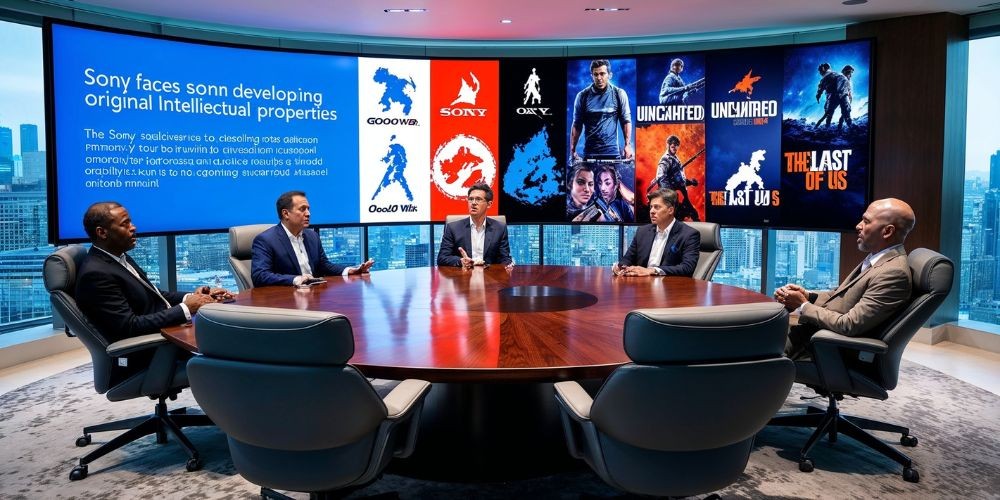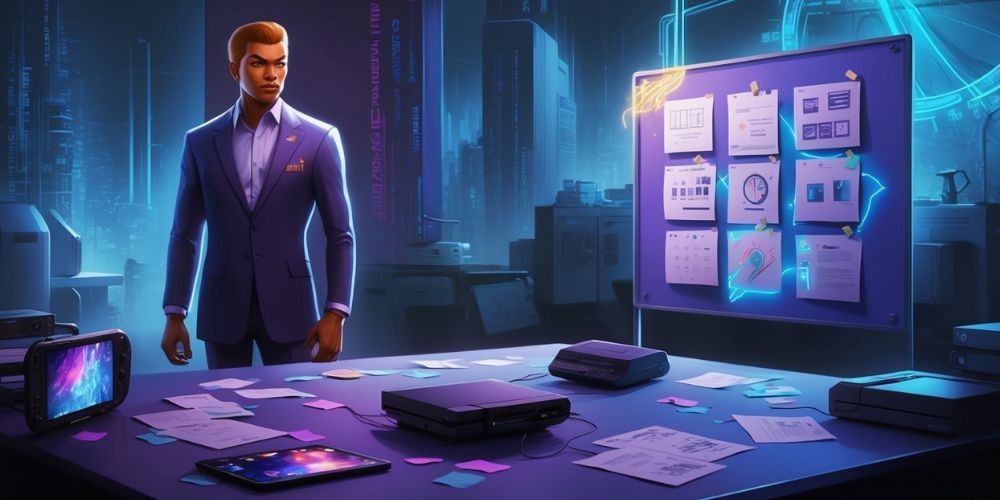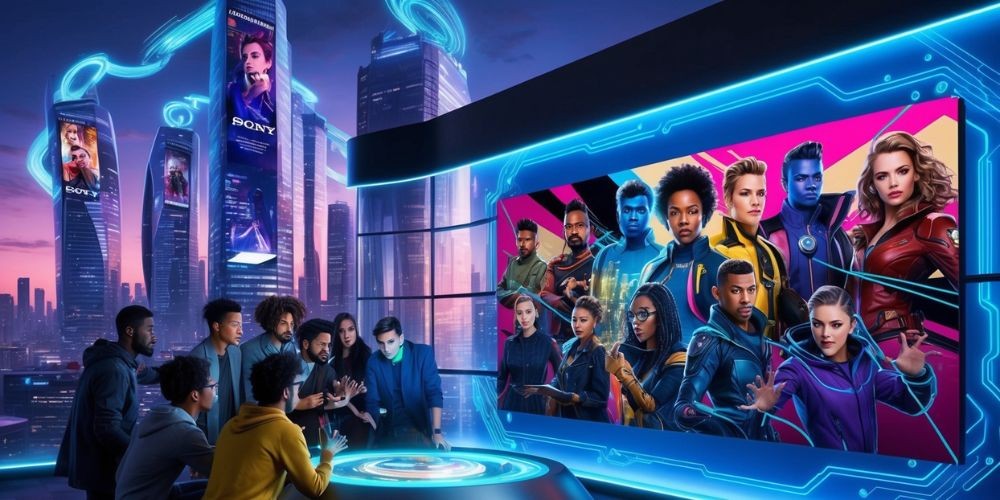Revitalizing Originality: Sony's Quest for New Franchises in a Competitive Landscape
- Sep 27, 2024
- 158

In the wide spectrum of games and entertainment, the importance of original intellectual properties (IPs) cannot be understated. As major players vie for audience attention, the ability to craft distinctive franchises from the ground up becomes a signal of creative strength and vision. Recently, an executive at Sony voiced concerns about the company's capabilities in developing such unique properties. This sentiment has sparked discussions among fans and industry experts alike, highlighting the struggle of establishing a varied assortment of franchises that have the potential to endure through the years.
Industry Insights: A Growing Concern
Recent remarks from Hiroki Totoki, the Chief Financial Officer of Sony, have raised eyebrows within the gaming and entertainment sectors. During an interview, Totoki expressed a critical assessment of Sony's current standing in terms of original franchises. He indicated that the media giant is facing a significant challenge due to its lack of homegrown properties.
The Scope of IP Development

Totoki's analysis extends beyond just the gaming division. He pointed out that the company's growth is hindered by its limited original IPs across various platforms, including games, films, and anime. According to him, this gap in foundational IPs is a pivotal issue that may impede Sony's competitive edge in an increasingly crowded marketplace.
Community Reactions: Nods to Nostalgia
PlayStation enthusiasts swiftly reacted to Totoki's commentary by reminiscing about beloved but forgotten franchises, such as Sly Cooper and Resistance. These nostalgic references underscore a desire among fans for Sony to revive these classic properties, which could potentially reinvigorate the brand's image in the eyes of consumers.
Viewpoints on Homegrown Success
While some fans voiced their discontent over the lack of new original content, others noted that besides the immensely popular Spider-Man, Sony's most notable achievement in transmedia entertainment remains The Last of Us. This franchise, which recently garnered acclaim through its HBO adaptation, illustrates the potential for narratives to evolve beyond their original formats.
The Perils of Reliance on Acquired Franchises

As Sony grapples with its identity as a creator, critics have noted that its heavy reliance on existing franchises may limit its creative potential. The mindsets of audiences are often shaped by their experiences with iconic characters and stories, making unique content essential for long-term success in the entertainment landscape.
Strategic Acquisitions and Their Implications
In its pursuit of valuable franchises, Sony has demonstrated a willingness to explore bold acquisition strategies. The failed bid to join forces with Apollo to acquire Paramount for $26 billion exemplifies the company's ambition, even if it has yet to yield the expected results.
CEO's Vision: A Focus on Creative Development
In discussing future possibilities, CEO Kenichiro Yoshida emphasized the importance of nurturing creativity at Sony. He stressed that the company's strengths lie in technological advancements and innovative creation, aiming for a balanced approach between developing original content and collaborating with distribution partners.
Streaming Partnerships: A New Wave of Opportunities

In a way that may be regarded as a reply to rising production costs, Crunchyroll's President Rahul Purini revealed intentions to collaborate with Sony in co-producing shows. This strategic alliance could pave the way for more streamlined production processes while targeting the ever-expanding global anime audience, which may reach one billion in the near future.
The Competitive Landscape of Franchise Development
Sony is not alone in its quest for original content. Numerous media companies, including Nintendo, Sega, Warner Bros., and Disney, are actively combing through their portfolios to find hidden gems that could be transformed into dynamic new projects. This quest for content has resulted in several revivals, showcasing the potential for creativity to flourish with the proper reinvigoration of legacy materials.
The Uneven Success of New Ventures
Not all of Sony's efforts to innovate have met with success. The launch of Concord, a multiplayer online franchise, was short-lived, as it was pulled from circulation shortly after its debut. Initially intended to feature in Amazon's Secret Level series, the abrupt cancellation of Concord has led enthusiasts to ponder the potential developments of new IP development within the company.
Fostering Fan Sentiment: A Walk Down Memory Lane

While the gaming community awaits fresh content, nostalgia persists as an important contributor to dialogues surrounding Sony's legacy. Many fans frequently reminisce about classic titles such as Infamous, Jak and Daxter, Dark Cloud, and Gravity Rush, emphasizing the emotional bonds created by these iconic franchises over time.
The Future of Sony’s Creative Endeavors
Looking ahead, Sony's trajectory will depend on its ability to foster new franchises while leveraging existing fandoms. Efforts to introduce fresh stories and characters may prove crucial in maintaining relevance in a time distinguished by quick innovations in technology and changing consumer expectations.
Exploring New Genres and Formats

As the entertainment sector transforms, adaptation is equally required Sony's approach to IP development. Incorporating diverse genres and exploring innovative storytelling methods can unlock new avenues for engaging audiences across multiple platforms, from games to streaming services.
The Role of Emerging Technologies
Advancements in digital technology represent another exciting frontier for Sony. By harnessing emerging technologies, the company has the potential to elevate its creative processes and create more immersive experiences for fans, engaging them in ways previously thought unattainable.
A Call to Action for Creative Growth
In conclusion, the comments from Sony's executive have sparked a critical dialogue regarding the need for original franchise development. As the media landscape grows ever more competitive, it is imperative for companies like Sony to invest in creativity and innovation to cultivate a portfolio that resonates with audiences and sets them apart from competitors in a meaningful way.